ANATHEISM
INSURRECTIONS: CRITICAL STUDIES IN RELIGION,
POLITICS, AND CULTURE
Insurrections: Critical Studies in Religion, Politics, and Culture
Slavoj iek, Clayton Crockett, Creston Davis, Jeffrey W. Robbins, editors
The intersection of religion, politics, and culture is one of the most discussed areas in theory today. It also has the deepest and most wide-ranging impact on the world. Insurrections: Critical Studies in Religion, Politics, and Culture will bring the tools of philosophy and critical theory to the political implications of the religious turn. The series will address a range of religious traditions and political viewpoints in the United States, Europe, and other parts of the world. Without advocating any specific religious or theological stance, the series aims nonetheless to be faithful to the radical emancipatory potential of religion.
After the Death of God,
John D. Caputo and Gianni Vattimo, edited by Jeffrey W. Robbins
Nietzsche and Levinas: After the Death of a Certain God,
edited by Bettina Bergo and Jill Stauffer
The Politics of Postsecular Religion: Mourning Secular Futures,
Ananda Abeysekara
Strange Wonder: The Closure of Metaphysics and the Opening of Awe,
Mary-Jane Rubenstein
Religion and the Specter of the West: Sikhism, India, Postcoloniality,
and the Politics of Translation,
Arvind Mandair
Plasticity at the Dusk of Writing: Dialectic, Destruction,
Deconstruction, Catherine Malabou
ANATHEISM
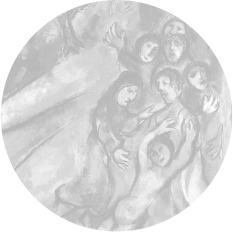
{ RETURNING TO GOD AFTER GOD }
RICHARD KEARNEY
COLUMBIA UNIVERSITY PRESS  NEW YORK
NEW YORK
Columbia University Press
Publishers Since 1893
New York Chichester, West Sussex
cup.columbia.edu
Copyright 2010 Columbia University Press
Paperback edition, 2011
All rights reserved
E-ISBN 978-0-231-51986-1
Library of Congress Cataloging-in-Publication Data
Kearney, Richard.
Anatheism: returning to God after God/Richard Kearney.
p. cm. (Insurrections)
Includes bibliographical references (p. ) and index.
ISBN 978-0-231-14788-0 (cloth: alk. paper)ISBN 978-0-231-14789-7 (pbk. : alk. paper)ISBN 978-0-231-51986-1 (e-book)
1. God. 2. Death of God. I. Title II. Series.
BL473.K43 2010
211dc22
2009017886
A Columbia University Press E-book.
CUP would be pleased to hear about your reading experience with this e-book at .
References to Internet Web sites (URLs) were accurate at the time of writing.
Neither the author nor Columbia University Press is responsible for Web sites that
may have expired or changed since the book was prepared.
For my sister, Sally,
who heals and cares
Sometimes the guest must leave the host
in order to remain a guest
Fanny Howe, The Lyrics
He was my hosthe was my guest,
I never to this day
If I invited him could tell,
Or he invited me.
So infinite our intercourse
So intimate, indeed,
Analysis as capsule seemed
To keeper of the seed.
Emily Dickinson
CONTENTS
The space we stood around had been emptied
Into us to keep, it penetrated
Clearances that suddenly stood open.
High cries were felled and pure change happened
Seamus Heaney, Clearances
When I arrived in Paris in 1977 to study with the philosopher, Paul Ricoeur, the first question he asked everyone is his seminar was: do parlez-vous? Where do you speak from? I would like to preface my thoughts on the return to God after God with some considerations of why this theme matters to me. Why anatheism and why now?
The God question is returning today with a new sense of urgency. One hears much talk about the return of the religious in contemporary world politics. Debates on the relation of the secular and the sacred are prevalent and arresting. Many speak of a religious turn in Continental philosophy or, contrariwise, of an antireligious turn in a new wave of critical secularism (Daniel Dennett, Richard Dawkins, Christopher Hitchens). Vital disputes about theism and atheism have not disappeared, as some expected, with the Enlightenment and subsequent declarations of the death of God by Nietzsche, Marx, and Freud. The God question keeps returning again and again, compelling us to ask what we mean when we speak of God. A deity of omnipotent causality or of self-emptying service? A mighty monarch or a solicitous stranger? A God without religion or a religion without God? A bringer of war or peace?
The questionwhere do you speak from?may also be answered at a more personal level. So let me begin by trying to situate my own stance in this critical conversation. The God debate was especially important for me as a young philosopher living in Europe in the last decades of the twentieth century and moving to America shortly before the catastrophe of 9/11 and the renewed outbreak of war in the Middle East. The concern was as political as it was philosophical. And it carried an added charge for someone growing up in Ireland during a thirty-year period of violence with daily news reports of Catholics and Protestants maiming each other in the northern part of our island. The sectarian strife in Belgrade and Beirut mattered too, of course, but Belfast was just up the road. (I lived in Dublin for twenty years.) I couldn't ignore it even if I wanted to. But, in addition to witnessing sectarian violence, I also experienced the arrogance of certain Protestant and Catholic leaders speaking as if God was on their side. Home Rule is Rome Rule! What we have we hold! No Surrender! Not an Inch!
Such religious triumphalism did not, fortunately, prevent intrepid peace efforts and ecumenical dialogues occurring in my country, most notably in places like Glencree or Glenstal Abbey where I studied for five years. Indeed my education with the Benedictine monks of Glenstal played a formative role in my life. My mentors there took seriously the Rule of St. Benedict regarding uncompromising hospitality to the stranger. Not only was this enlightened Abbey to serve as one of the focal points for ecumenical reconciliation between Catholics, Anglicans, Presbyterians, and Methodists in Ireland, it also opened doors to profound exchanges with the Oriental Orthodox Church and, further afield, with the non-Christian religions of the East. This Benedictine Abbey was a place where strange gods were welcomed and conversed with. And, when many years later I found myself tracing the footsteps of pioneering Benedictines like Henri le Saux and Bede Griffiths to the spiritual heartlands of India, I was reminded of the radical nature of interspiritual hospitality. These migrants entered into contact with foreign religions not to colonize or convert but to bear witness to their own God by learning from other Gods.
Happily, during my time in Glenstal, as later in Benedictine and Ignatian ashrams in India, the atheist too was a welcome stranger. How could one authentically choose theism if one was not familiar with the alternative of atheism? Or the agnostic space between? Indeed, in my first Christian doctrine classes at Glenstal I remember how liberated I felt when the monks had us read cogent arguments against the existence of Godby Feuerbach, Nietzsche, Sartre, and Russellbefore any talk of why God might exist! Atheism was not only tolerated, it was considered indispensable to any wager of faith. And so I learned that, if it was indeed one of the most hostile religions in world history (the facts were legion), Christianity could also be one of the most hospitable.
Next page
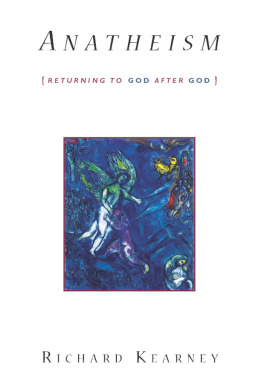
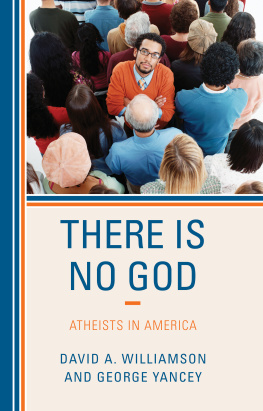
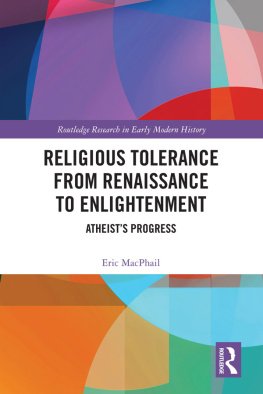
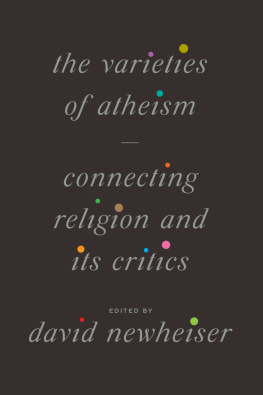

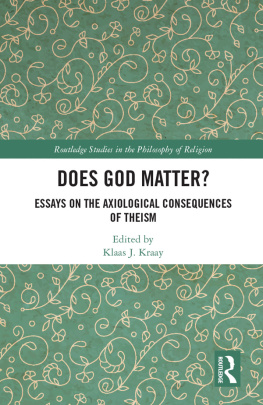
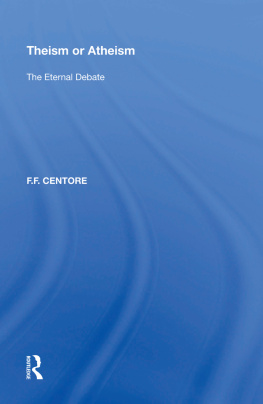
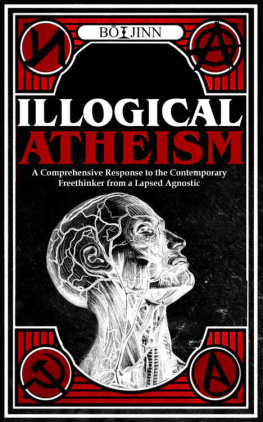
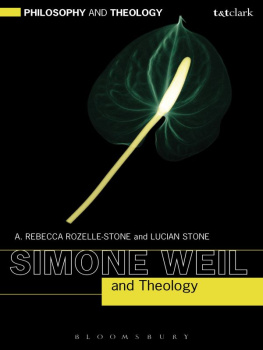
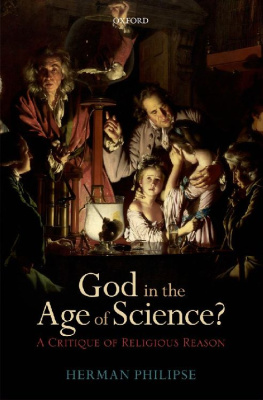
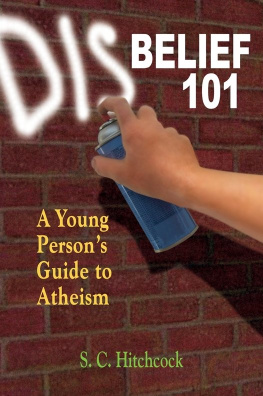
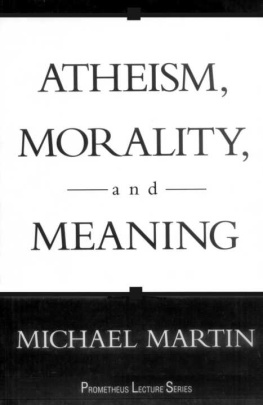

 NEW YORK
NEW YORK